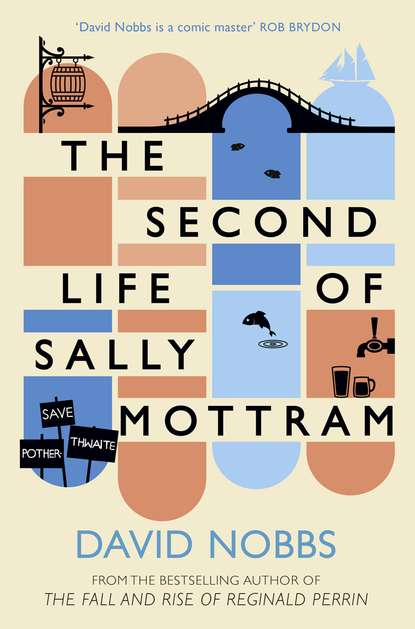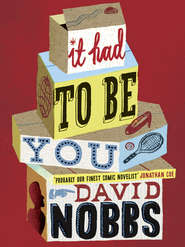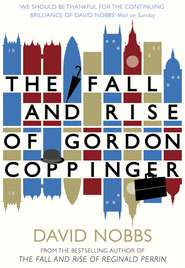По всем вопросам обращайтесь на: info@litportal.ru
(©) 2003-2024.
✖
The Second Life of Sally Mottram
Автор
Год написания книги
2018
Настройки чтения
Размер шрифта
Высота строк
Поля
‘I’d have thought their occasional tables might tell you.’
‘Oh, don’t be silly, Jill. Where are you going?’
Jill Buss was striding towards the door with a sudden sense of purpose. It unnerved Arnold when she showed a sense of purpose.
‘I’m going to tidy my make-up, if you must know.’
This was dreadful news. No good could come out of Jill tidying her make-up. Arnold was not sociable.
‘And why might you be going to tidy your make-up at this moment?’
But Jill was far ahead, out of earshot. She had marched across the landing, now she burst through their large bedroom – the rooms were big in these old houses – strode into her en-suite – they had separate bathrooms, the en-suite was her stronghold – and shut the door in Arnold’s face. She didn’t like him in the room when she was doing her make-up; he could never resist sarcasm. ‘We’re going to the pub for the early bird, not Buckingham Palace.’
He hesitated, then plucked up his courage, opened the door, and went in.
‘Arnold! I might have been on the toilet.’
‘You aren’t.’
‘But I might have been, that’s the point. You couldn’t know I wasn’t.’
‘I’m surprised that …’ He stopped. What he had been about to say wasn’t wise, wasn’t wise at all.
‘You’re surprised what?’
‘Nothing.’
‘No, come on, Arnold, what?’
He sighed. His sighs were deep and frequent.
‘I’m surprised that a woman who earned her living giving people colonoscopies should be so ladylike about going to the toilet in front of a man who has known her and her body for forty-four years. Why are you touching up your face, Jill?’
‘I’m going round to see them, if you must know.’
‘See them? See who?’
‘Arnold! You aren’t stupid. Don’t pretend to be. Them. Our new neighbours.’
Arnold’s mouth dropped open. He looked as if he’d had a stroke. He could see his appalled face staring out at him from behind Jill’s still-lovely face in the mirror. It was a bad moment. He was terrified of having a stroke, and ending up looking as he looked at this moment, and it was painful to see his face there, haggard, rigid and grey, just behind hers. She looked infuriatingly attractive still, the softness of her auburn hair, the strong curves of the nostrils, the elegance of the upper lip. Even the lines of her face, because they came from smiles more than from grimaces, enhanced her charm. He looked so much older than her. He was older, but only by a year, seventy-three to her seventy-two. No, the picture he saw in her mirror in her bathroom did not please him. But worse even than that was her announcement. Going round to see them!
‘See them, Jill? Why?’
‘Welcome them. See if they need anything. Don’t you want to be friendly?’
‘Of course I do. If they’re the sort of people we want to be friendly with. But they might be Jehovah’s Witnesses. They might be shoplifters. They might be Liberal Democrats. They might be Catholics. They might be vegetarians. They might be Welsh.’
‘They might be Welsh vegetarian Liberal Democrat Catholic shoplifters.’
‘Exactly. Now do you see why I don’t want you to just charge round there?’
‘So how do you propose that we find out if they’re our sort of people? Do we send them a questionnaire?’
‘Don’t be silly. We observe them. We listen. Do they argue? Do they shout? What sort of music do they play? Does he put the box on when he mows the lawn? Do they hang out the washing in a seemly manner? What quality are their underclothes? Do they put the bins out properly? Do they have dogs?’
‘How many times do they pee in the night?’
‘You’re not taking this seriously.’
Jill turned round, away from the mirror, to give him a sober look.
‘I am, you know,’ she said. ‘We’ve been attached on to an empty house for more than two years. This means change, this could be the end of paradise, of course we’re edgy, but we’re human beings, and they’ll be knackered, and they’ll be edgy too, they’ll need cheering up, I would think, coming to Potherthwaite from Chichester, I would be … so …’
‘I wish you wouldn’t keep running Potherthwaite down, Jill. It isn’t Venice, but it’s home. And you only run it down to rile me.’
Arnold was writing a history of Potherthwaite. It was called ‘A Complete History of Potherthwaite’. It was very long already, because he was unable to leave anything out, now that he had described it as complete, but also because he was terrified of finishing it, which was in truth why he had described it as complete.
‘They’ll be stressed. They may not have anything to cook with. I’m going to invite them for supper.’
‘Jill. This is recklessness personified.’
‘Yes. Let’s live a little.’
Arnold left the bathroom quietly, shut the door carefully, left her to it. He had almost said ‘I don’t want to live a little, I’m seventy-three’, but luckily he had thought better of it.
So twenty minutes later, having titivated herself to her satisfaction, and looking, she knew, rather stunning for a seventy-two-year-old, Jill called on the neighbours.
There were eight identical buildings in the cul-de-sac, four on each side of the road. Each building was divided into two identical residences, dignified and solemn in dark, stern stone, listed buildings on which no bright paint could be used. The new neighbours’ house was joined to the Busses’ on the southern side.
In the slowly fading light of a day that had never been fully light, Jill strode up the wilderness that was the neglected front garden of number 9.
She rang the doorbell, and wondered what Arnold would say if they were Muslims. She heard a key and then another key – what were these people frightened of? – and suddenly the front door was open.
The woman who was standing there was shorter than Jill, older than Jill, less attractive than Jill, but could have looked a great deal better than she did if she had made the best of herself. True, she had just endured a tiring journey, but Jill knew that this woman had long ago given up making the best of herself, and this irritated her.
They introduced themselves. The woman’s name was Olive Patterson. Jill didn’t waste time on small talk.
‘I wondered … I expect you’ve had a long journey, you must be tired … I wondered … because I don’t expect you’ll have unpacked your cooking utensils and things, Arnold and I … that’s my husband … we wondered … would you like to pop round for a bit of supper tonight?’
Confusion painted a faint red glow on to Olive Patterson’s pallid cheeks.
‘Oh, that’s so kind of you,’ said Olive. ‘So kind. No, it is, that is so kind, really, really kind, but really we’re … we’re fine, we’re all right … and I mean we had a sandwich in the car, at a service station … well, we had it in the car because you don’t want to both leave the car at the same time, with so much stuff in it, do you? I mean, who can you trust these days? You can’t, can you? So, no, we’re all right, but thank you, thank you again, we so appreciate … Harry … that’s my husband … will really appreciate your offer … but we don’t want to be a nuisance, and we really will be all right, honestly, but, as I say, that is so kind, thank you, but … as I say, another time.’
So Jill went back home, feeling strangely disappointed, but when Olive told Harry what she had said (though not at such great length) he exploded. He told her that in his opinion it was rude to refuse such a friendly offer, it was the first good thing that had happened all day, and he was going round to say they’d changed their minds. Olive pleaded with him – it would make her look silly. He told her that she was silly, and off he went.
A minute or two later, he met Jill’s eyes for the first time, and they held each other’s eyes a second or two longer than might have been expected at the door of a listed building in a cul-de-sac in Potherthwaite at the darkening death of a gloomy late winter’s day. He told her that if the offer was still on they would be delighted. She told him that the offer was indeed still on, and he was indeed delighted.
Bang on half past seven – Olive hated to be late – Jill led the Pattersons into the lounge, which was a large, high-ceilinged room with a chandelier, furnished with a curious mix of Arnold’s reticence and Jill’s ebullience. Jill had dressed down, Olive had dressed up, but Jill still looked the smarter. Arnold looked formal and old-fashioned in jacket and tie and a pale blue shirt with silver cufflinks. Harry was in full ‘they’ll know we haven’t had time to unpack’ mode. How different the two men were: Arnold tall and slim and grizzled, with salt-and-pepper hair and a very obedient little salt-and-pepper moustache; Harry short, not fat but bursting at the seams of his casual clothes, and as bald as a balloon.











